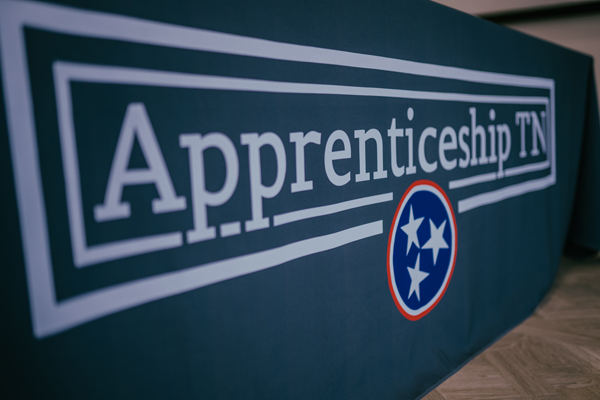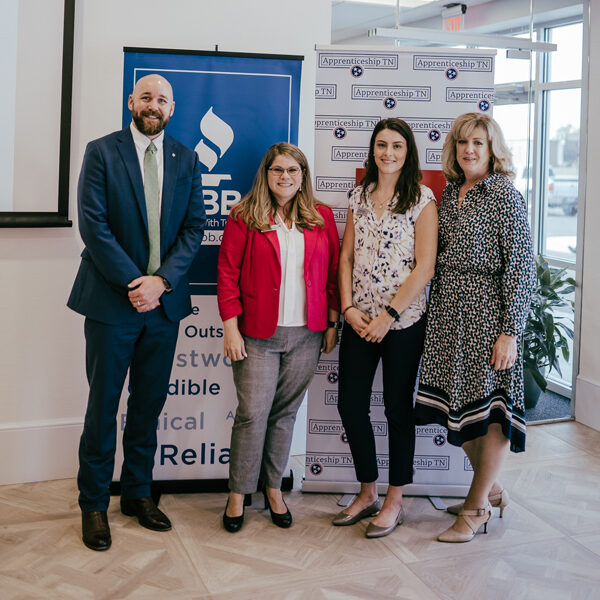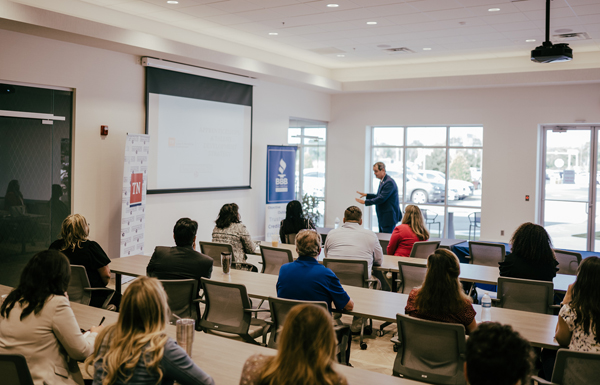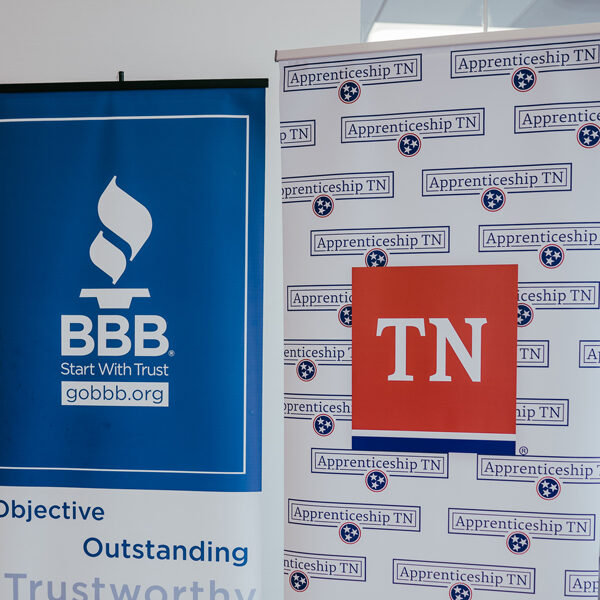
The Better Business Bureau of Middle Tennessee and Southern Kentucky recently partnered with the state of Tennessee to build up an apprenticeship program for various businesses throughout the state.
The program helps companies attract and retain employees.
“The apprenticeship program is part of the Tennessee Department of Labor and Workforce Development,” said Charlene Russell, Middle Tennessee regional apprenticeship director with the state of Tennessee. “We are part of the workforce business solution with the Department of Labor. Our office was established in 2019 as part of a grant, and we have really grown since then.
“We are now state-funded. That grant was there to help us get started, and we have had tremendous growth in apprenticeships across the state since then.”
Russell says the connection with the BBB started after a conversation in Rutherford County.
“It was really a neat connection,” Russell said. “I work closely with some great people there at the Rutherford County Chamber, and Essence Brisco with the Chamber just happened to reach out to me, and said she caught wind of a Better Business Bureau meeting happening in Murfreesboro, and they were looking to form an apprenticeship committee, and she really thought we needed to be a part of that conversation.
“I went to that meeting and talked to them and realized we could really help them with the process of establishing the apprenticeships and building their businesses.”
The partnership can help get the word out about the services the Department of Labor provides, including helping businesses establish registered apprenticeship programs.

Representatives from the Better Business Bureau encourage companies and employees to get involved in the state apprenticeship program.
“The Better Business Bureau is so much more than just an organization that regulates scams and bad reviews,” said Lorneth Peters, director of marketing and communications at the BBB. “We are here to help businesses. This is the forefront of what we do. We are here to help businesses grow and be better.”
Peters says a lot of challenges businesses face have to do with the workforce. The BBB of Middle Tennessee and Kentucky work with over 4,000 businesses, and she thought that many of the businesses would love the idea of an apprenticeship program.
“We are all about finding opportunities that support businesses as they continue to grow and face challenges,” she said. “The main problems they have right now are with staffing and retention. Employees are looking for better opportunities. This apprenticeship program provides more opportunity for companies to keep their great employees. And after the employee makes it through the apprenticeship program, they will see a pay increase.”
If a business is interested in the apprenticeship program, Russell will work with them on setting that up.
“She sits down and meets with them and asks them exactly how they want their apprenticeship program to look,” Peters said. “A lot of times people think an apprenticeship only works for the blue collar, but it works for almost any business. You can tailor it to the needs of your business. For the employee, an apprenticeship means the employee is learning skills not everyone will receive, and it can lead to more competitive pay.”
Russell says the registered apprenticeship program is a “tried and true method of training people.”
“It really creates a well-rounded employee for a career,” she said. “It helps individuals find pathways into careers, not just jobs. The apprentices work directly with a company, and we work with those companies.”
If a company needs more employees, the apprenticeship director can connect them with individuals looking for employment or re-entering the workforce.

The registered apprenticeship program involves structured on-the-job training with a mentor, and the apprentices are getting paid while they are learning, Russell said. The program also includes some classroom time. The hours of on-the-job learning and classroom time vary depending on the occupation.
“For example an electrician or a lineman are four-year programs: they require 8,000 hours of on-the-job learning, with an additional minimum of 576 hours of classroom time,” she said. “Whereas an entry-level position, such as a certified nursing assistant or a dental assistant or an entry-level manufacturing job are 2,000-hour programs that require one year of on-the-job structured learning and a minimum of 144 hours of classroom time.
“Here at the Department of Labor, we work with the businesses to determine what that structured adult learning looks like, and we also offer some online training at no cost to the employer through a program called 180 Skills, which is for registered apprentices here in Tennessee.”
The Department of Labor also offers more than 8,000 online courses for all Tennesseans through Coursera, an open online course provider.
To help more companies learn about the apprenticeship program, the BBB is offering various informational sessions throughout Middle Tennessee where they will discuss how the program works, how it can help the businesses, and answer any questions, Peters said.

The next Apprenticeship TN informational session is on Aug. 29 from 4–5:30 p.m. at the Better Business Bureau office headquarters, 25 Century Blvd., Nashville.
For more information in getting involved in the apprenticeship program, either as an employer or as an apprentice, visit apprenticeshiptn.com, or contact Dr. Charlene Sands Russell at charlene.russell@tn.gov or Lorneth Peters at lpeters@gobbb.org.
Free online courses for any state resident are offered at coursera.org.












